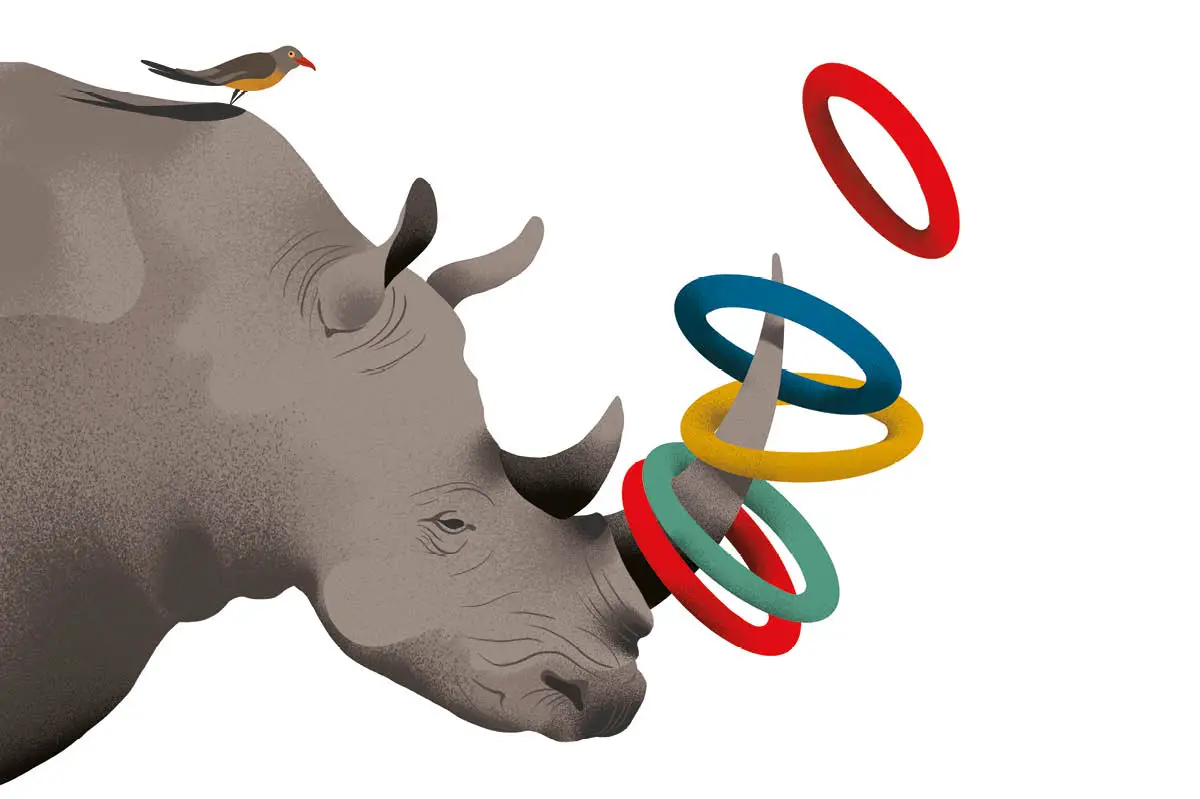One of my vanities is that all my novels are different. Yet one astute journalist identified a universal thread: ‘Too many people,’ she said. From among the many other piquant factoids in Paul Morland’s The Human Tide, I was unnerved to learn that ‘Hitler was obsessed with demography’ too.
Whether you also suffer from this unhealthy preoccupation or are simply shopping for a new way of looking at the world, this is a readable, trenchant, up-to-date overview of the biggest story on the planet — one in which we’re all actors. The author has a moderate bent, and doesn’t claim that population — its surging, contraction and migration — explains all of human history. But it comes awfully close.
After all, the long view is astonishing. It took 1,800 years for humans to increase from 250 million to one billion at the beginning of Queen Victoria’s reign in 1837. As of 2018, we’d reached more than 7.6 billion, the vast majority of that growth post war. And ‘the human tide’ (an expression this text repeats enough times to become annoying) continues to rise.
Yet we’re political animals. The long view of the human race is inevitably less fascinating than a closer-in look at which peoples lead the race in a competitive sense. Since the 1960s, writing about demography has steadily shifted from regarding high fertility rates as tragically entrenching poverty to accepting that numbers confer power. Not mincing words, Morland declares boldly at the outset that ‘ethnicity matters politically’. He spells out that ‘nations and ethnic groups are real’ and ‘they matter in history’.
The author charts the standard demographic transition after modernization: in country after country, industrialization, better sanitation and medical advances lead to more surviving children and longer life expectancy. Population balloons. Urbanization makes large families economically disadvantageous. Parents register that most of their kids will live to adulthood. Population stabilizes.
Yet this transition has hit different peoples at different times. Britain was first, followed by the rest of western Europe. According to Morland, 19th-century Europeans managed to project power, exert influence and claim territory as a consequence of mushrooming domestic populations whose excess these countries could afford to send all over the globe. If Great Britain, as the historian Timothy Snyder claims, ‘made the world’, it did so, Morland explains, ‘by exporting people’. Ergo, people to spare made the British Empire possible.
The Human Tide shies from this risky inference, but it’s worth asking: if Europe’s sending its extra population abroad projected power, exerted influence and claimed territory, isn’t mass migration from developing nations to the West not currently doing the same thing? After all, democratic countries confer real political power on their inhabitants (although Brexit seems to be testing that proposition). One plausible explanation for the rise of identity politics and the ever-increasing role that race plays in issues of the day is simply mass immigration. Numbers translate directly into voice and clout.
For at the same time the West has now reached ‘the second transition’ — below-replacement fertility — many developing countries, modernized much later, continue to grow, and on a scale that makes the population of burgeoning 19th-century Britain look like a poorly attended cocktail party. Because the primary instruments of lower mortality and expanded life expectancy were initially of western invention, the West has inadvertently engineered its own diminishment.
I have only one serious criticism of this excellent book, and that’s a matter of proportion. Thus far, Africa has failed to get with the program. Although its fertility rates have come down, they haven’t plummeted nearly as quickly as they were supposed to. Consequently, UN estimates for the global population at which we’re meant to level off, once heading steadily downwards, now go up every year. By 2050, Africans may total 2.5 billion, and 4.5 billion by 2100. Given demographic momentum, to a degree these numbers are baked in. But perhaps because stubbornly large African families jar with the transition model, Morland devotes a scant eight pages to this crucial continent, and dubiously Pollyanna pages at that.
The author isn’t always so demure. He forcefully discounts a popular mantra of British multiculturalists: ‘It may often be said that England has always been a land of immigration, but this is simply untrue.’ Until very recently, England and Wales have absorbed a tiny, demographically incidental handful of Huguenots and Jews. The rise of the population that does not consider itself white British from 2 percent in the 1960s to nearly 20 percent in 2011 is ‘historically unprecedented’.
Morland credits Britain for having successfully spread its language and culture to English-speaking countries that remain — just — ‘the richest and most economically powerful people on earth’. Nevertheless, these same nations are not only ‘now in retreat in many fields on the world stage; they have significantly retreated as an ethnic group within their own states’. White Britons are expected to become a minority in Britain circa 2060 or so. Starting in 1980, white Europeans in California fell from 70 percent to 40 percent in a mere 30 years.
The Human Tide is packed with Fun Facts: ‘Life expectancy for men in Glasgow is lower than for men in Gaza.’ ‘Today there are seven times as many people claiming Irish descent in the USA than there are in Ireland, north and south combined.’ ‘There is a proven link between the youthfulness of a society and its proclivity to go to war.’ By contrast: ‘Older populations tend to be more peaceful and the societies in which they predominate are less crime-ridden.’ ‘Russia’s suicide rate is one of the highest in the world,’ and in 2010 ‘one in ten villages in Russia had fewer than ten inhabitants’. Beat that! And people think demography is dry.
This article was originally published in The Spectator magazine.
























